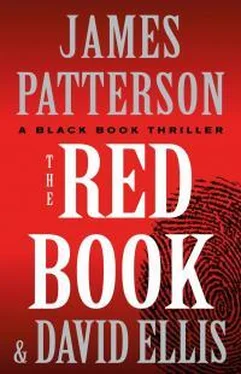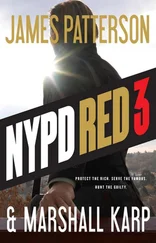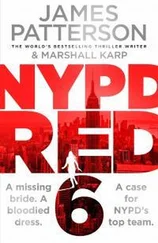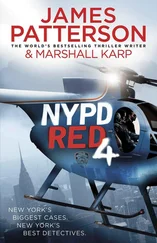“You’re going to kill them,” she says.
Billy remains still, quiet. When he finally responds, his voice is robbed of all inflection, all emotion. “You should leave now, Patti.”
“Billy.” She walks to him, puts a hand on his shoulder. “You could lose everything. You’ve worked so hard to get back on your feet, and you could lose it all.”
He nods his head but says nothing.
“Billy—”
“Then I lose everything.” He jerks his shoulder, moving her hand off, then turns to her. “I’m going to find out what happened to Valerie. I don’t care what it costs me.” He grabs her by the arms. “Now go home, Patti. And forget this conversation ever happened. You don’t want to be involved in what happens next.”
Chapter 41
SEVEN YEARS ago.
The gambling problem started after the divorce, or at least that’s what he claimed. He was fifty-four, their only son out of the house, and he felt incredibly alone when his wife left.
Jesus, Patti remembers thinking back then. Why not just surf porn on your computer or get into some online chat room for losers? Never really made sense why that led him to fall in with the high-end poker rooms, throwing away his money. But there it was. He was a good man, a longtime public servant, who’d made a mistake. But a mistake, nonetheless, that threatened everything.
“Twenty-seven thousand dollars and change,” he said, his face falling into his hands, the words coming out through sobs. “I have nowhere else to turn. I don’t have the money. They’re going to kill me.”
“I’ll help you,” Patti told him. She didn’t tell him the next part, the part that he didn’t need to be told: he would owe her.
A shiver runs through Patti as she starts up her car, reverses out of Billy’s driveway, and drives. The streets in Lincoln Park are filled with people with so much less on their minds, people younger and happier, unburdened by the things she sees every day on the job—the burned babies and the bloodied, bruised spouses; the desperate, angry juveniles; the gangbangers who spit at her. People who don’t have to wonder what’s behind every door they enter, inside every vehicle they approach.
She reaches her apartment and parks in her designated space in the back lot. An apartment she wouldn’t be able to afford were it not for the fact that the landlord likes having a cop in the building.
The engine still running, she turns on the dome light and pulls out the autopsy report filed by the ME’s office, reads its conclusion one more time.
Cause of death: Self-inflicted gunshot wound
Manner of death: Suicide
“Fuck you, Val,” she whispers. Billy might have made excuses for her, but Patti wouldn’t have any of it. How could Val spend one minute away from that hospital room while her daughter was lying in a coma? While Billy was suffering, too?
Sure, okay, maybe Val had some depression issues. They’d all seen it. But what more could Billy have done? He took the night shift so Val could work days as a public defender while he took care of their little girl. Billy and Val hardly saw each other. He was holding down a brutal overnight shift and caring for Janey during the day. He was sleeping two, three hours out of every twenty-four. And when Janey had the stroke, he got family leave, walked away entirely from his job—more than Val could say. What, her job was more important than his?
No, Billy had done more than enough. None of this was his fault.
And now this? Now he has to relive this whole thing? Because of some stupid fantasy about a Russian human-trafficking ring? Where the hell did that come from?
She gets out of the car, uses the key to enter the back entrance to the four-story condo building. Ignores the smell of cannabis coming from the first-floor unit, her stoner neighbor Jamie and his buddies. Heads up to the second floor, walks into her lonely condo, and enters the bedroom.
Four years ago.
“The scene was pristine,” Patti told Dr. Fernando Cruz. Only the chief medical examiner in Cook County would be assigned the case of a cop’s dead wife.
“You’ve seen the photos,” she told him. “No gunfight. No forced entry. No evidence of struggle.”
Doc Fern removed his glasses, pinched the bridge of his nose. “The angle,” he started to say.
But she interrupted him. “Angle shmangle. There’s no manual for how you shoot yourself.”
“And the GSR,” said Doc Fern.
“Bullshit and you know it,” said Patti. “Billy wrapped her up in his arms when he found her. He gripped her, hugged her, held her. That could’ve easily removed any residue.
“And don’t forget Val’s depression, Fern. That’s documented. And for God’s sake, she’d just lost her daughter. Of course it’s suicide.”
Inside her bedroom, Patti opens the closet, turns on the light. Reaches up to the top shelf and pulls down a long plastic box. She opens the box. Lifts the other documents—her birth certificate, a savings bond from Aunt Marcy, a thin family album—and pulls out a file from the bottom.
She removes the document from the file folder, the same fourteen pages, the same heading (OFFICE OF THE MEDICAL EXAMINER), the same title (REPORT OF POSTMORTEM EXAMINATION), the same subject (HARNEY, VALERIE BLINDERMAN). But it’s not the same document.
No, this version bears a red stamp in the corner spelling out one word: PRELIMINARY.
And that’s not the only difference. The last page, too, the conclusion.
Cause of death: Gunshot wound
Manner of death: Indeterminate
Indeterminate. That cruel, ugly word, meaning we can’t be sure, Billy; she might have been murdered, Billy; more investigation is needed, Billy.
Imagine, she thinks, if Billy had ever seen this preliminary version of the ME’s report.
Imagine, she thinks, if Doc Fern hadn’t had that gambling debt a few years earlier, which Patti used her badge to help work down from twenty-seven thousand dollars to six thousand dollars, stripped of all the vig and placed on a reasonable repayment schedule.
Imagine if Patti hadn’t called in that favor with Doc Fern.
Patti takes the preliminary report and walks into her bathroom, the report still flipped over to the final page. She picks up the Bic lighter resting behind a scented candle on the counter. She flips on the lighter and raises it to the report, the flame illuminating the words:
The angle of the gunshot wound and the sporadic presence of gunshot residue on the decedent’s hand and forearm are not necessarily suggestive of suicide and could lead to a reasonable conclusion of homicide.
The paper curls as the flame spreads, turning those words to ash. She holds the document as long as she can, until the flame almost licks her fingers pinched at the edge of the document, before she drops it into her metal garbage can and watches it curl and flicker into indecipherable black ash.
The last remaining copy of that “preliminary” report, never made public.
If Billy will no longer believe the suicide conclusion, maybe she’ll help him pin it on these Russian traffickers, whoever they are. At least that would give Billy closure.
But he can’t ever know what really happened.
Chapter 42
“YOU’RE LEAVING,” I said to Valerie as she removed her hand from Janey’s.
Valerie, eyes heavy, neck aching after spending the night by her bedside in the ICU. “I’m going to work,” she said.
I didn’t want to argue in the hospital room. I followed Valerie out into the hallway. “You’re going to start back to work?” I asked. “Your office said take all the time you need.”
“These kids need me,” she said.
“Janey needs you,” I said.
Читать дальше












